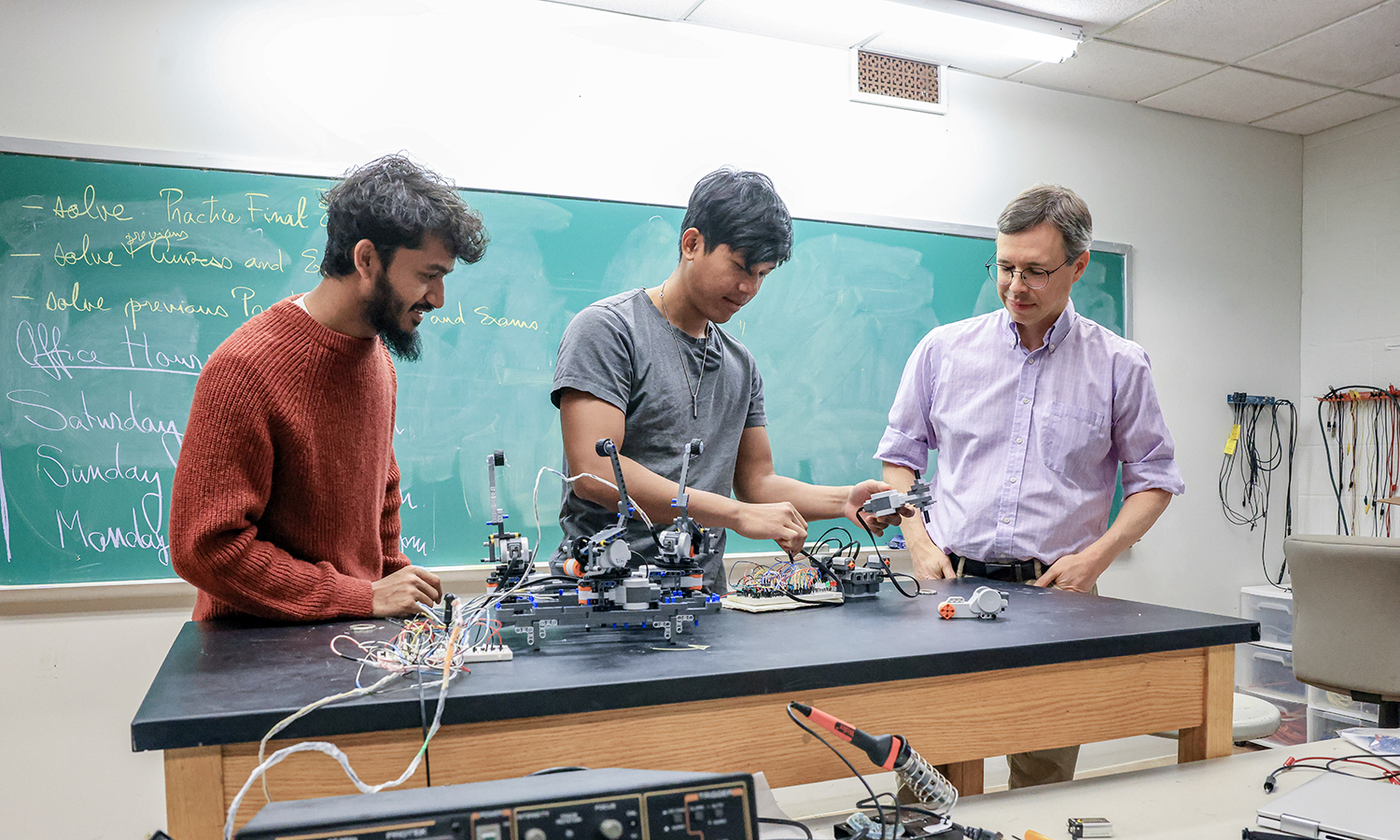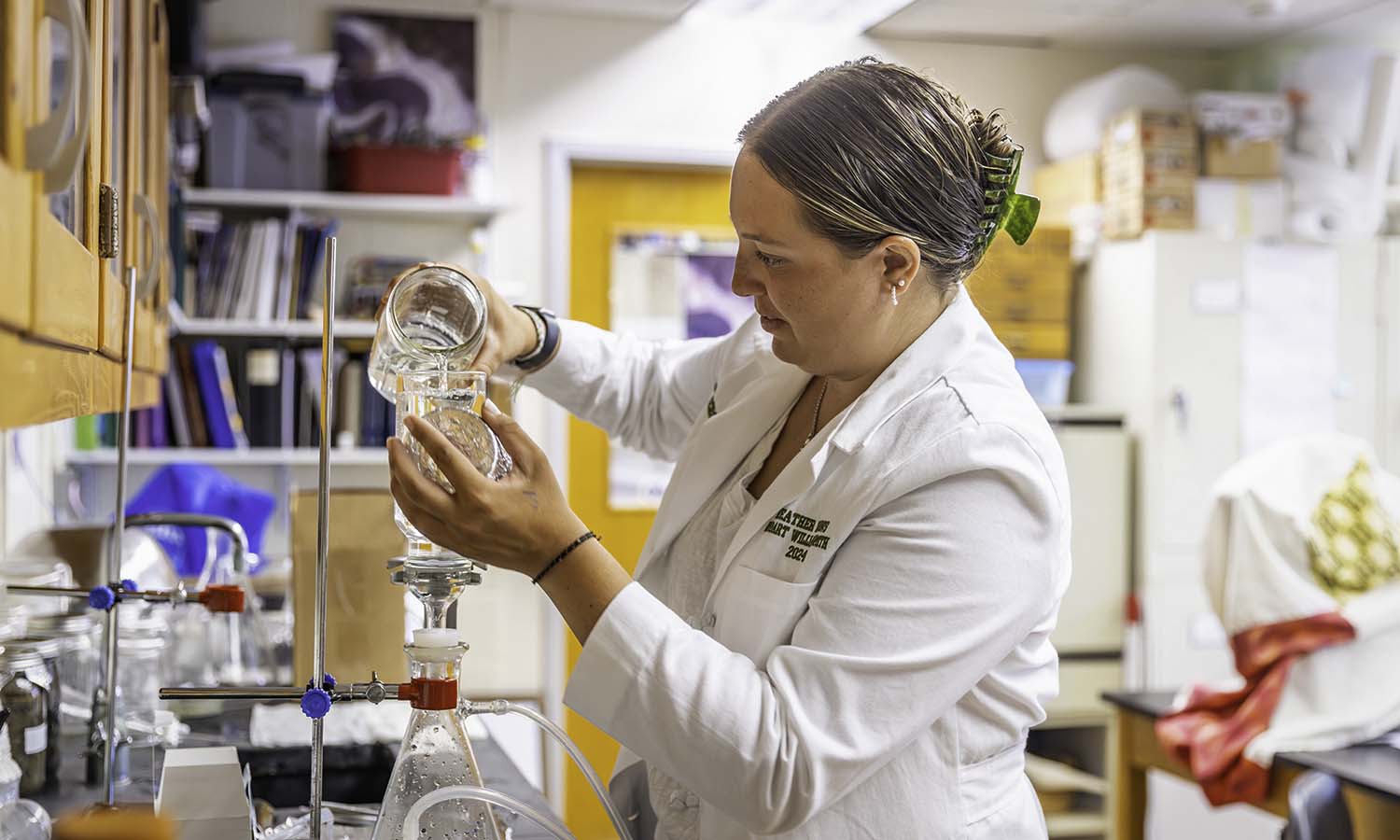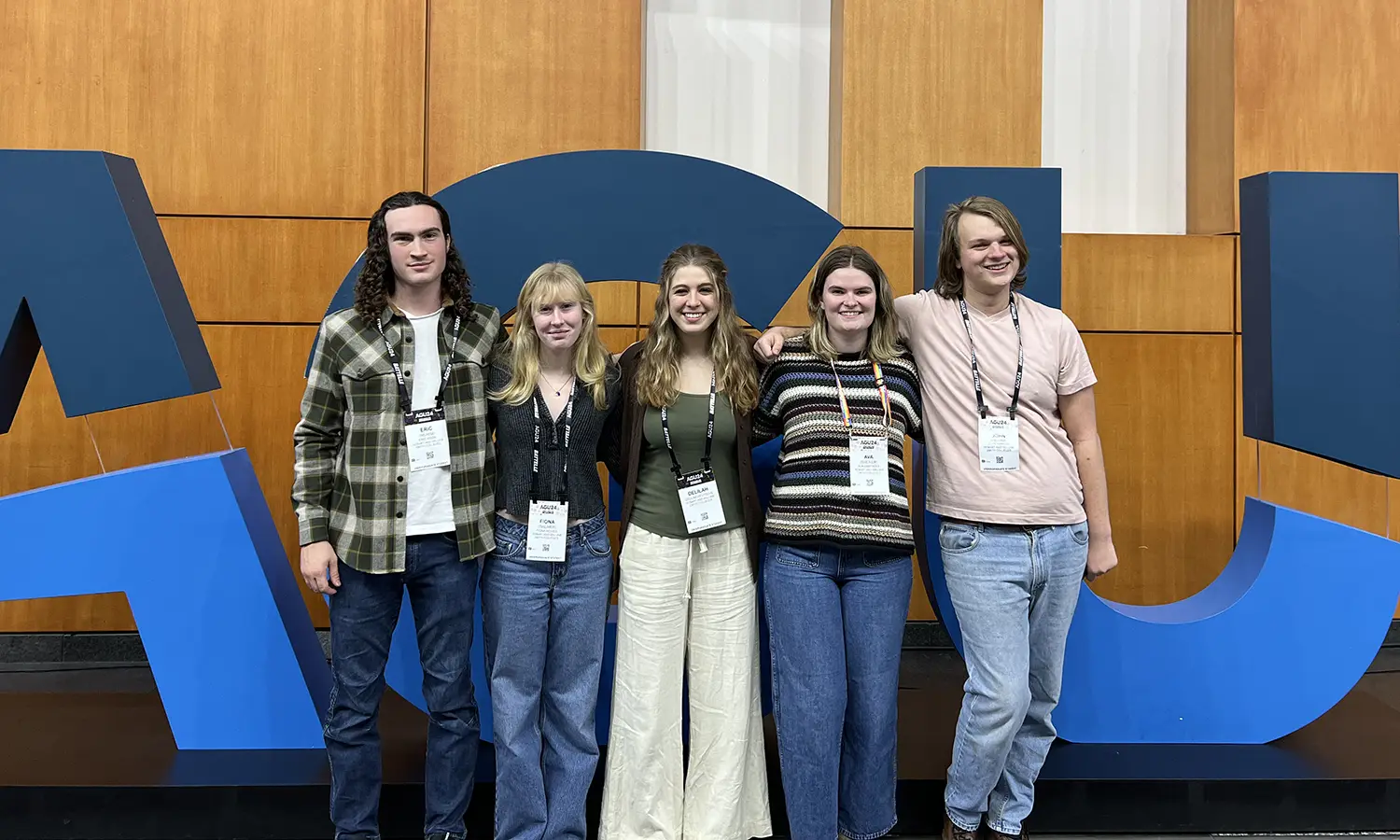
HWS News
6 January 2023 • STEM Brain Signals, Robotics and Research
Members of the Robotics Club join a faculty research project to explore the intersection of computer science and medicine.
Robotic testing of brain models plays an increasingly important role in developing medical treatments for neuromotor conditions such as Parkinson’s disease, as well as robotic prosthetics for patients managing paralysis and amputation.
As Assistant Professor of Computer Science Chris Fietkiewicz explains, “Modern neuroscience uses computer models to study how the brain controls movement through the use of muscle tissue and sensory feedback. Testing such models is extremely difficult to do with animals and humans, and robots offer a valuable alternative for mimicking the muscle and sensory components.”
Fietkiewicz, who worked in industry for a decade as both an electrical engineer and software engineer before joining HWS in 2019, has embarked on a new neurorobotics research project in collaboration with Vuthy Vey ’24 and Md Khairul Islam ’26, the co-founders and executive committee members of the HWS Robotics Club.
Both students are enrolled in the Colleges’ Joint Engineering Degree program — a cross-institution partnership with Columbia and Dartmouth, and Vey and Islam began work on the neurorobotics project with Fietkiewicz during the fall semester.
Vey, who has worked on satellite development and testing during internships at the Cornell University Space Systems Design Studio, programs robots to examine various inputs that simulate brain signals. Islam, who has won multiple awards in international robotics competitions and mentored fellow students, helps construct the robots.
Under their leadership, the HWS Robotics Club continues to grow, attracting the attention of 70 HWS students and drawing additional resources and materials to design robots and drones. Islam says members come to the club with various interests and backgrounds: some have extensive experience building robots, some prefer the programming aspect, and some are novices who are simply curious about the technology and its applications.
Using the knowledge they’ve developed through their academic research and through the club, Vey and Islam have set their sights on the club’s next phase: national competitions.
Fietkiewicz’s research in computational neuroscience focuses on software development for simulating neurons and neural networks. He collaborates on multiple projects with researchers at Case Western Reserve University in the departments of Biomedical Engineering, Biology and Mathematics.
Click here for a detailed description of Dr. Fietkiewicz’s research.



